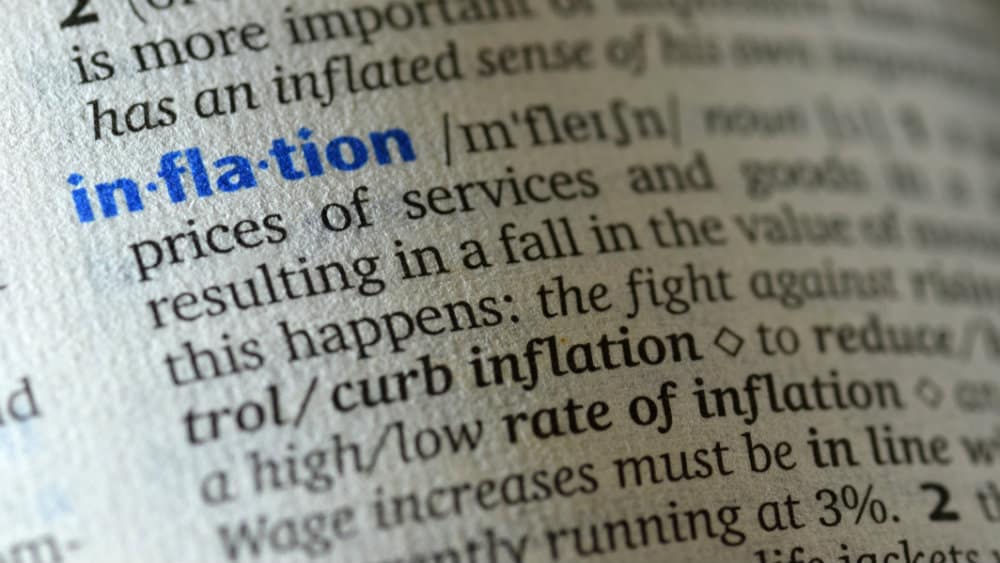On Tuesday this week, the International Monetary Fund (IMF) warned that the global economy is entering a phase of inflationary risk. Central banks need to be prepared to tighten monetary policy quickly and decisively if price pressures do not ease, says the IMF. The Bank of England thinks that inflation will peak above 4% in the UK by year-end.
So if inflation is coming, why should I, as an investor in UK stocks and shares, worry? And if I should be worried about how inflation might affect my portfolio, is there anything I can do to lessen the harm?
One Killer Stock For The Cybersecurity Surge
Cybersecurity is surging, with experts predicting that the cybersecurity market will reach US$366 billion by 2028 — more than double what it is today!
And with that kind of growth, this North American company stands to be the biggest winner.
Because their patented “self-repairing” technology is changing the cybersecurity landscape as we know it…
We think it has the potential to become the next famous tech success story. In fact, we think it could become as big… or even BIGGER than Shopify.
Click here to see how you can uncover the name of this North American stock that’s taking over Silicon Valley, one device at a time…
Why should investors worry about inflation?
Inflation affects stock prices in general and also more specifically.
The Bank of Englands’s Financial Policy Committee (FPC) is concerned that:
“Asset valuations could correct sharply if, for example, market participants re-evaluate the prospects for growth, inflation or interest rates.”
What the FPC is getting at is that low interest rates, robust growth, and modest but transient inflation are keeping stock markets buoyant as the world recovers from the Covid-19 pandemic. But, if inflation is persistent and gets out of hand, interest rates might have to rise to combat it. Rising rates will put the brakes on economic growth. The net effect is usually lower stock market valuations, or more explicitly, a stock market crash. But, a stock market crash will not affect all stocks equally.
FTSE 100 stocks
Companies with low or negative earnings, with high expected revenue growth and whose best years are far in the future, are likely to be hit the hardest by a stock market crash precipitated by rising rates, inflation, and slow growth.
Suppose growth and small-cap stocks are likely to be hit the hardest by an inflationary environment. In that case, it is logical to conclude that large-cap stocks with established businesses should perform better. The FTSE 100, and possibly the upper end of the FTSE 250, is where I want to be looking for these types of stocks.
Can I narrow the search down further beyond large-cap mature stocks to try and reduce the effects of inflation on my portfolio’s value? I think I can. So far, I have focused on the systematic impacts of policy responses — rising rates and reducing monetary stimulus — to higher than expected inflation. But what about the effects of inflation itself?
What is so wrong with inflation? Are rising prices not suitable for businesses? Selling items for higher and prices sounds ideal. But, consider what happens if the cost of materials used to produce the items is also increasing. What if wage inflation is making products and services more expensive to produce?
If a business faces these cost pressures but does not increase its sales prices, gross and operating margins will contract. If a company can increase its prices to its customers, it might keep its margins. But what happens if customers won’t pay the inflated prices?
Inflation-busting stock criteria
What I need to be looking for are large-cap stocks with pricing power. I am looking for big, quality businesses with good track records and the following characteristics:
- Offers unique, non-homogenous, differentiated goods and services.
- Provides goods and services that are essential and used frequently.
- Goods and services overall take up a small percentage of customers’ spending.
- Ideally sells to other businesses rather than consumers.
- Digital delivery is a bonus but not essential.
There are problems in the labour market at the moment. But, the labour shortages appear to be concentrated in the transportation and storage sector. I might want to avoid this sector, as wage cost pressure will be highest here.
UK stocks and shares with pricing power
Relx (LSE:REL) and Halma (LSE:HLMA) seem to fit my criteria. They are both large-cap stocks in the FTSE 100 index. Both have posted positive earnings and paid a dividend for at least the last five years. That is a solid five-year track record.
Relx is a provider of information-based analytics and decision tools for professional and business customers. The company also publishes journals, databases, and reference sources for scientific and medical researchers. These are services that companies really can’t do without, and they are delivered digitally, often on a subscription basis.
Halma produces safety products and services for industrial and healthcare sector companies. Fire detection and suppression systems, for example, are things that businesses cannot easily cut back on: health and safety regulations see to that.
Neither company sells directly to consumers or at least keeps this to a minimum. Both sell mission-critical goods and services to businesses, and these are likely to consume a relatively small percentage of their customer’s total costs.
If inflation starts to bite
Naturally, if inflation is a concern and Relx and Halma are potential inflation beaters, other investors might be onto this already. Relx is trading at a price-to-earnings ratio of 22.5, and Halma shares are priced at a whopping 42.8 times trailing 12-month earnings. The average P/E ratio for the FTSE 100 is 15.8, so both shares could be considered pricey, but Halma especially so.
Relx has a significant events business that closed during the pandemic. The closure caused Relx’s revenues to fall in 2020. The events business is still not back up to speed and might never recover fully, as it relies on a good deal of international travel.
Halma is a manufacturer. It will need to source components and might find its operations hampered if the current disruption to global supply chains continues. Halma is also known to grow through bolt-on acquisitions. Although its balance sheet is solid, deals usually require financing. If rates are rising to combat inflation, that would make Halma’s deals potentially more expensive and hamper its growth.
Even with these risks, I believe that Halma and Relx are both stocks with the potential to outperform the FTSE 100 if inflation does start to bite. I will keep both on my watch list.
Free Report: 3 Shares To Try And Hedge Against Inflation
The Bank Of England has acknowledged that inflation is likely to peak above 4%, and stay there until the second quarter of 2022.
Some people are running scared, but if there’s one thing we believe you should avoid doing at all costs when inflation hits… it’s doing nothing.
That’s why we’ve put together a brand-new special report that uncovers 3 of our top UK and US share ideas to try and best hedge against inflation.
Because no matter what the economy is doing, a savvy investor will want their money working for them, inflation or not!
Best of all, we’re giving this report away completely FREE today!
Simply click here, enter your email address, and we’ll send it to you right away.
This post was originally published on Motley Fool




